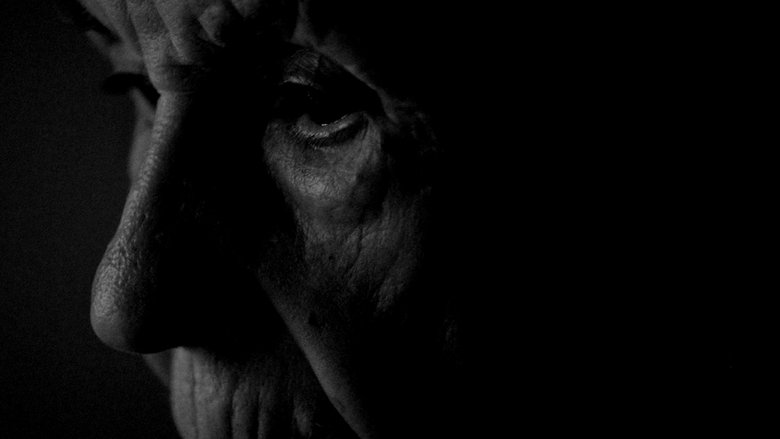Similar to El tribunal de las aguas

Behind Natacha Rambova's Shadow (2019)
The adventurous life of Natacha Rambova (1897-1966), an American artist, born Winifred Kimball Shaughnessy, who reincarnated herself countless times: false Russian dancer, silent film actress, scenographer and costume designer, writer, spiritist, Egyptologist, indefatigable traveler, mysterious and curious; an amazing 20th century woman who created the myth of Rudolph Valentino.
La doble vida del faquir (2005)
La doble vida del faquir (The magicians) returns to the scene of a school in the Catalan town of Sant Julià de Vilatorta where, in 1937, in the midst of civil war, a film-maker in hiding and a group of orphaned children dressed up as sultans and explorers shot an exotic adventure film. The films protagonists relive those childhood days when they were able to switch their school smocks for oriental turbans, while reality imposed its own fancy dress ball with military uniforms and priests dressed in civilian garb.
Broken Memories (2010)
An audiovisual chronicle of the Spanish Civil War in Galicia. Memorias Rotas centers on a group of republican fighters leaded by Commander José Moreno. The group disappears as they fail trying to escape by sea in the border between Galicia and Asturias and nobody ever knows about them.
Pitiusas 1936-1939. Los Años Grises (2ª Parte) (2016)
On September 13, 1936, Ibiza is bombed. The republican forces flee the island, but not before mass shooting all the prisoners locked up in the city castle. On September 20, the so-called national forces landed, under the command of Commander Antonio Montis Castelló and Arconovaldo Bonacorsi, better known as Conde Rossi, who began a harsh repression that would last beyond the end of the war.
Las vencidas y no derrotadas (2022)
In 1936, after the coup d'état perpetrated by Franco against democratic Spain and the subsequent dictatorship that followed a bloody Civil War, women suffered physical, sexual, economic, educational and political violence, leading to the largest theft of babies in the world. History of recent Europe. 'Las vencidas y no derrotadas' is a documentary with the testimonies of these women, whose faces bear the mark left by unhealed wounds. Its protagonists tell us about real events, reliving events that were milestones in their families, towns and cities, supported by graphic documentation of family and personal memories, as well as images and audios from historical archives.
Las cerezas del exilio (2023)
This film reveals testimonies, reflections and memories from the experience of many Aragonese who, after the Republican defeat in the civil war, had to cross the Atlantic in search of survival.
De espalda al sol (2024)
This documentary collects, through the testimonies of five survivors, four women and one man, the tragedy experienced in “la Desbandá de Málaga and the subsequent exile to France. At the entrance of Queipo de Llano's troops into the city of Malaga, thousands of people, mostly women and children, fled to Almería along the road. They were bombed by sea, land and air by the German army, Mussolini's army and Franco's troops from the then Moroccan colony. Around five thousand people died on these two hundred kilometers of road. This exodus was known as “La desbandá”.
Sang i salsa (de tomàquet) (2021)
A documentary about the ghosts of Joan Perucho, which wants to be an immersive experience in the author's universe, in his literature, in his landscapes, his fears and obsessions, his experiences, war, cinema, vampires, the fantasy genre and pop culture.
Beste aldea. Gizona ez den hori (2023)
In 1936, the war broke out in Spain and in 1937 the front was maintained for many months around Angiozar and Elgeta. It has often been talked about what men experienced, but women have also experienced the war. Through this documentary, their bravery and courage, both at the front and in resistance away from the front, has been highlighted and recalled.
Pitiusas 1936-1939. Las islas cambian de color (1ª Parte) (2016)
In 'Las islas cambian de color', the coup d'état and the beginning of the repression against the Republicans are narrated, highlighting figures such as Margalida Roig Colomar, to give way to the landing of Bayo, the role of the Anti-Fascist Militia Committee and its temporary dominance of the island.
Jaén, Viento del Pueblo (2024)
The documentary 'Jaén, Viento del Pueblo' places the viewer in the year 1936 and takes them to the present day, analyzing and pivoting around the processes of exhumation of the graves in the province of Jaén, the stories of relatives and experts

La calle del Agua (2020)
Benjamina Miyar Díaz (1888-1961) led an unusual life in her house on calle del Agua in Corao, Asturias, at the foot of the Picos de Europa mountain range in northern Spain: she was a photographer and watchmaker for more than forty years, but she also fought in her own humble and heroic way against General Franco's dictatorship.
Aidez l'Espagne (1969)
The Colegio de Arquitectos de Catalunya commissioned Pere Portabella to make this film for the Joan Miró retrospective exhibit in 1969. There were heated discussions on whether it would be prudent to screen the film during the exhibit. Portabella took the following stance: "either both films are screened or they don't screen any" and, finally, both Miro l'Altre and Aidez l'Espagne were shown. The film was made by combining newsreels and film material from the Spanish Civil War with prints by Miró from the series "Barcelona" (1939-1944). The film ends with the painter's "pochoir" known as Aidez l'Espagne.